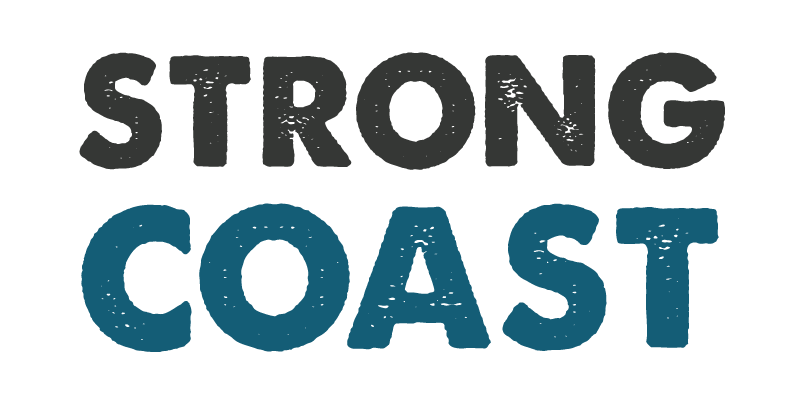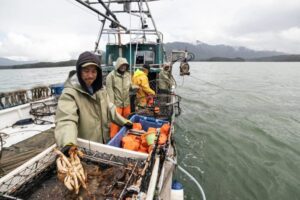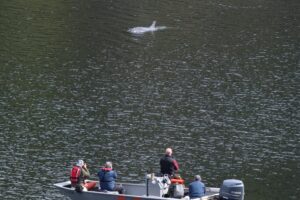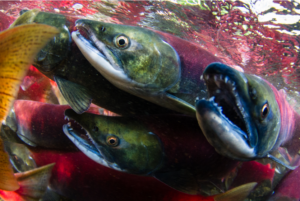
A significant step has been taken towards challenging the sustainability certification of Alaskan salmon. An independent adjudicator has accepted a complaint from three BC groups, who allege that Alaskan fisheries are raking up significant bycatch and potentially causing a 100% mortality rate for those non-target species.
SkeenaWild Conservation Trust and the Raincoast Conservation Foundation are leading the charge in raising concerns about the sustainability of Alaskan salmon. Watershed Watch also supports the challenge, though they are not named in the official complaint. According to Watershed Watch, Alaskan salmon fishers are intercepting millions of fish destined for rivers in BC, Washington, and Oregon. The complaint is directed toward the Marine Stewardship Council (MSC), a global seafood certification body, and the BC groups are asking the MSC to revoke the “sustainable” certification for Alaskan salmon.
Misty MacDuffee, Raincoast’s wild salmon program director, stated that the acceptance of the objection by the adjudicator indicates an acknowledgment that there may be potential flaws in the assessment of Alaska’s salmon fishery.

In addition, the BC groups claim the Alaskan salmon fishery has not met past MSC conditions for certification, lacks comprehensive data, and misrepresents certain fish stocks. However, their central complaint revolves around the operation of the purse seine fishery off Alaska’s Panhandle. Purse seine boats cast out large nets that are drawn closed. In the process, the nets scoop up a lot of bycatch, which is then dumped onto the deck of the boat—this treatment of bycatch results in a high mortality rate.
Watershed Watch executive director Aaron Hill says that the purse seine fishing method adopted in Alaska and a lack of regulation on releasing bycatch means that the Alaskan fishery could very well have a 100% mortality rate for bycatch.
One species commonly caught as bycatch by the Alaskan fishery is Chinook salmon, a vital food source for the Endangered southern resident killer whale. An expert who testified during a 2023 US court case on the issue of Chinook interception Alaskan fisheries revealed that just 5% of the Chinook intercepted could stabilize the entire southern resident whale population.
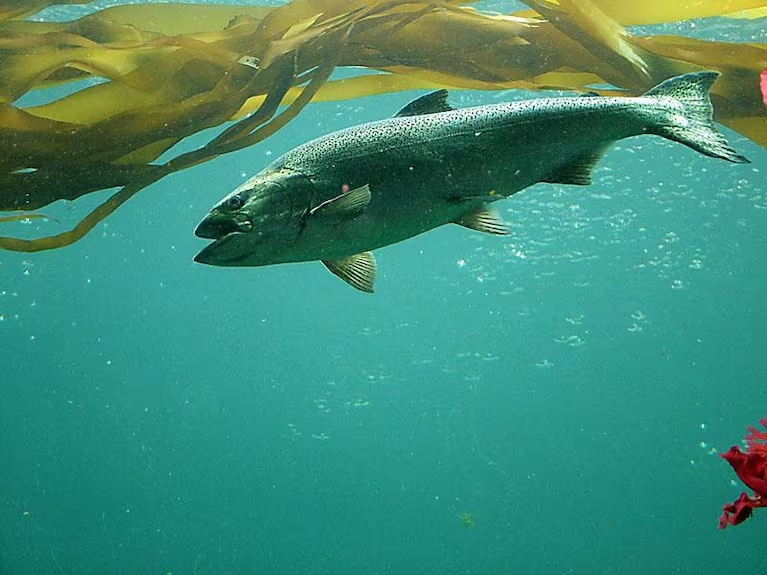
Doug Vincent-Lang, commissioner for Alaska’s Department of Fish and Game, maintains that Alaska’s fisheries are sustainably managed.
As the challenge progresses, both Alaska and the BC groups will have the opportunity to present evidence and argue their case. Jackie Marks, a spokesperson for MSC, clarified that the MSC is not directly involved in this process.
The parties involved now have 15 days to consult and possibly reach agreements on the issues raised in the challenge.
Learn more about this issue here.
